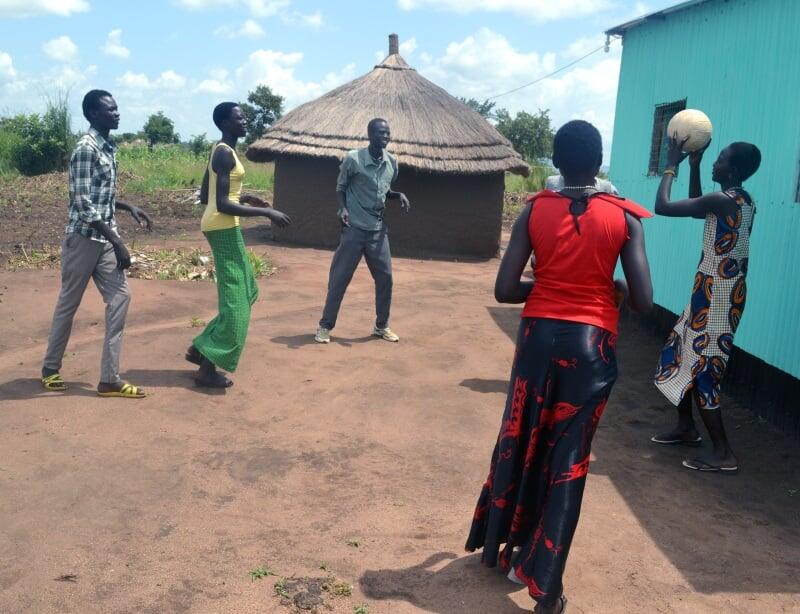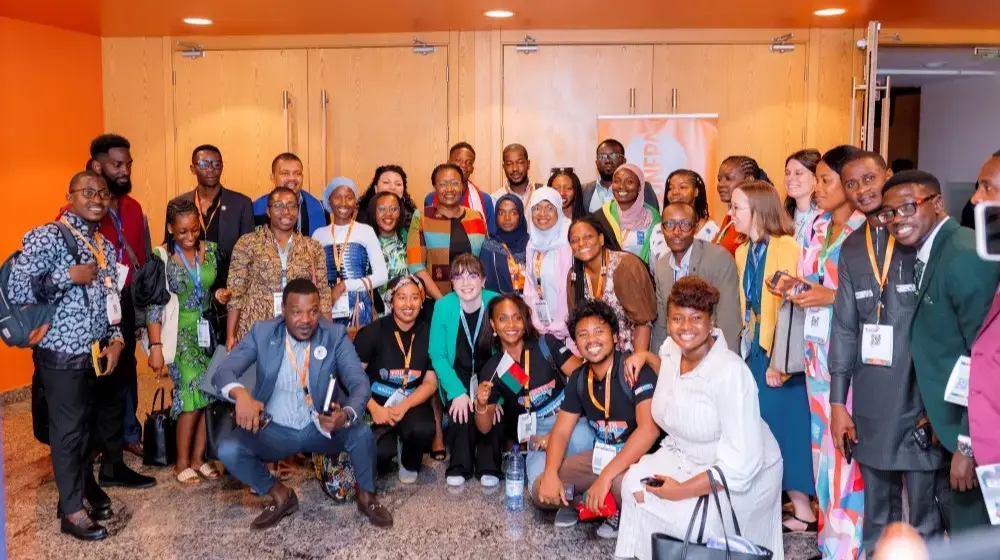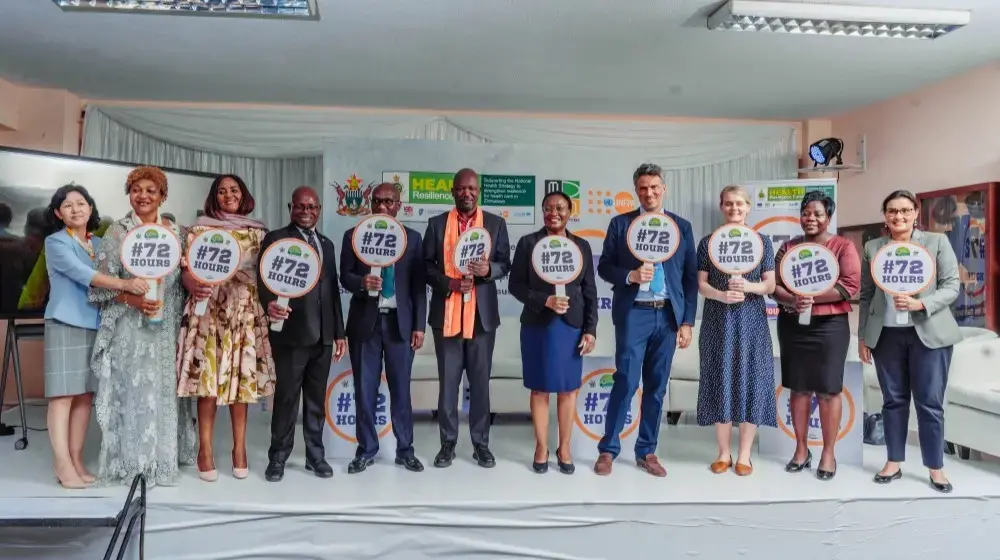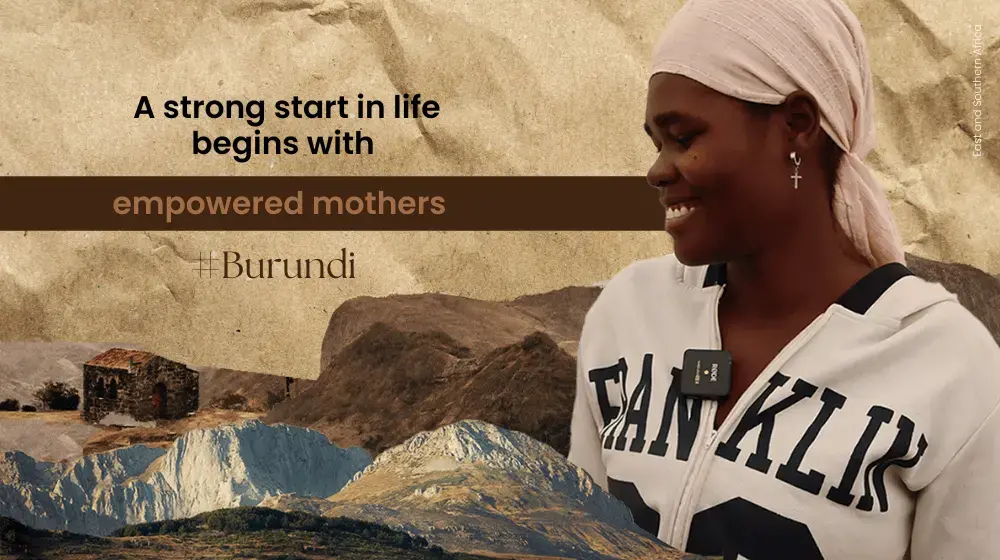AYILO REFUGEE SETTLEMENT, Adjumani District, Uganda: Football is much more than a game to 21-year-old South Sudanese refugee Mike Marchar – he finds solace in playing the sport because it takes his mind off his thoughts and the post-conflict trauma he suffers.
The young man dreams of becoming a great footballer one day, just like his hero, Real Madrid striker Karim Mostafa Benzima. “I would like to be like him because he is young, strong and powerful,” he said.
He fled South Sudan after the conflict broke out in December 2013 and, to this day, does not know the whereabouts of any of his family members – or if they are even alive.
“Football is my life. When I play football, I forget about the past because it keeps my mind occupied. I also make new friends,” he said.
And there is more to gain than the game itself: “Through the gatherings after the football games, I have learned a lot about how to protect myself from HIV and other STIs. I know how to make the right choices to stay alive because I am the ‘Benzima’ of tomorrow,” he said.
I know how to make the right choices to stay alive because I am the ‘Benzima’ of tomorrow. – South Sudanese refugee Mike Marchar, 21

Using sport to impart messages
Standing two metres tall, Mathew Mach, 24, dreams of becoming a basketball player. Like Marchar, he finds solace in playing games: “I love basketball. If I am given the opportunity, I could be a good player,” he said.
He believes that if promoted well, basketball can benefit other young refugees like him, possibly even to earn a living from it: “Basketball could turn out to be rewarding and be a benefit to my community. You never know what could come of the talent we have. Besides, practice makes perfect,” said Mach, who is also a community volunteer.
We inform communities about the dangers of unprotected sex and gender-based violence. – Mathew Mach, 24, refugee and community volunteer
Playing sport occupies his time and keeps him away from antisocial and risky behaviours: “Basketball can also be used for change in my community, which is our focus as volunteers. So you introduce basketball in a community with many young people who have reasonable height, as I do, and people gather to watch. After the game, we pass our messages on to them.
“We inform communities about the dangers of unprotected sex and gender-based violence. These messages can protect us from harm,” he said.
Thousands displaced by conflict
Conflict in South Sudan has left the country politically unstable and displaced thousands. Since the influx began in mid-December 2013, over 170,000 South Sudanese refugees have crossed the border into Northern Uganda and settled in different refugee camps – 104,837 are hosted in Adjumani District and 40,882 in Kiryandongo, with 7,655 in Kampala (as at 27 October 2015).
With such vast numbers, opportunities for young people are thin on the ground and living conditions are difficult. There are no job prospects and education is negligible.
Empowering young people
Young people are at the centre of UNFPA’s mandate. The agency seeks to ensure that they are armed with knowledge, skills and services to enable them exercise their rights, understand their bodies and make informed decisions about their health and wellbeing.
Through implementing partners ACCORD and the American Refugee Council (ARC) in Adjumani, CARE in Arua and International Rescue Committee (IRC) in Kirandongo refugee settlements, many young people are now getting an opportunity to enjoy a life protected from unsafe choices. These include organizing and supporting communities to engage in games like football, basketball and netball, to mobilize them for message dissemination on reproductive health and how to make safe choices to achieve their full potential. These spaces also serve as a social ground to reconstruct their lives while in the settlement.
It is through such gatherings that they build substantial relationships, and learn from each other about growing up, body changes and making healthy choices. – Aggrey Aikirize, ACCORD Project Officer
“Such activities not only keep the young people physically and emotionally healthy, but also keep them active and occupied, and free from redundancy. It is through such gatherings that they build substantial relationships, and learn from each other about growing up, body changes and making healthy choices,” said Aggrey Aikirize, a Project Officer with ACCORD.
Games build young people’s physical fitness levels, mental well-being and social integration by providing a forum where they can meet, interact with peers and continue to develop physically, emotionally and mentally, even in an unfamiliar setting, he said.
“The extracurricular activities like football and netball games are being used as a mode of therapy and a way to inform young people about issues relating to sexual and reproductive health,” said John Thon, Deputy Team Leader, Ayilo Refugee Settlement.
“These games have helped increase their knowledge on making healthy choices and allowed free participation among the young people. Many girls are also encouraged to take part in sports activities and this is meant to prevent teenage pregnancies,” he said.
Preventing gender-based violence
In Kiryadongo Refugee settlement, sport and drama are being used to send messages about preventing gender-based violence and making safe choices.
“Visualizing and hearing at the same time is very important. When you are watching something on TV and listening at the same time, it’s easier to grasp the message than while listening to the radio. That is why we brought in drama, using fellow youths who they can associate with,” said Joseph Ebwou, a clinician working at the Youth Friendly Services in Panyondoli HC III.
“The plays are usually about making the right choices, avoiding unsafe sex and the consequences of those actions,” he said.
This method is a win-win scenario for youth, he added: “Young people love sports. As they gather together, we take that opportunity to talk about the reproductive health services that we provide. As the men are playing football and ladies are playing netball, they can keep themselves busy and not engage in risky behaviours that could affect their health.”





